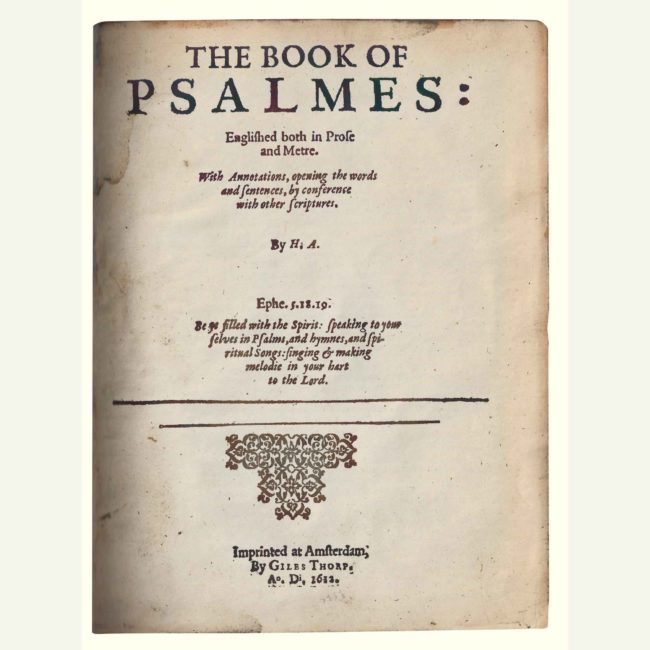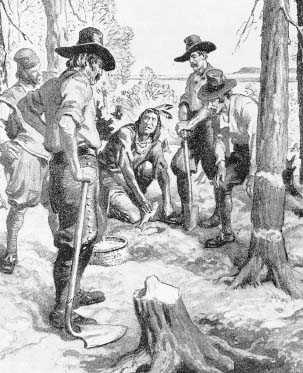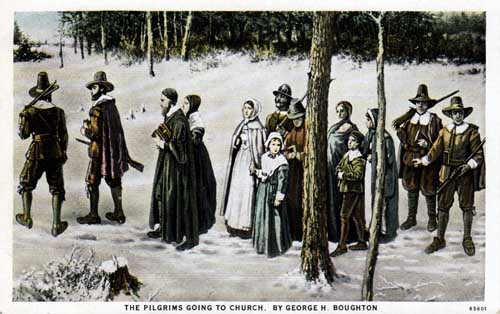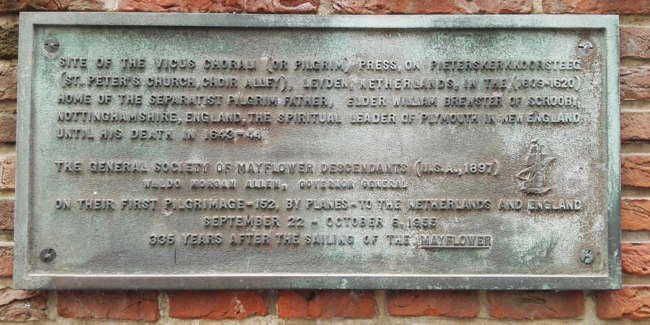Pilgrim Worship from the Book of Psalms
About the time we get the first glimpse of the Pilgrim’s order of worship in 1612, Henry Ainsworth published his Book of Psalms. Containing lyrical and metrical versions of 39 Psalms from the Bible, it became the spiritual expression of musical joy brought by the Pilgrims to the new world 400 years ago. On July…















